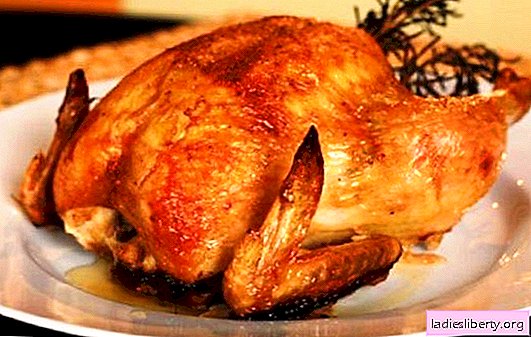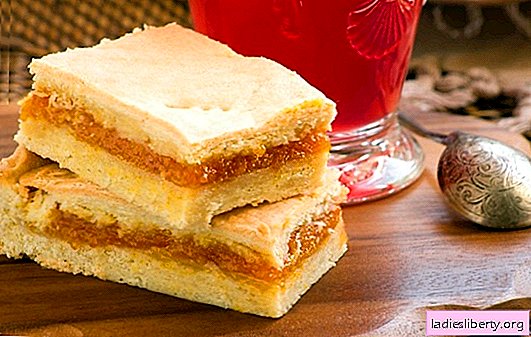
St. John's wort grass is a medicinal plant that has found application in folk medicine as a healing agent for the treatment of various diseases.
The plant is used for the preparation of infusions, decoctions, rinses according to ancient recipes.
Its ability to heal the mind and body is highly valued, as is the knowledge about the healing properties, methods of use and possible contraindications for the body.
The chemical composition of St. John's wort and useful properties
It is a feature of the composition of the plant that determines its useful qualities. The composition includes:
volatile, which act as a natural antibiotic and can have an antimicrobial effect on the body;
nicotinic acid, entering the body, sets up the cardiovascular and nervous system in the right way;
Vitamin A or carotene has a positive effect on vision, stimulates the restoration and regeneration of dermal cells, serves as a defense for the body from various viruses and bacteria;
Vitamin C strengthens the immune system, and also strengthens cartilage and renews ligaments, prevents the development of tumor cells;
tocopherol reduces the negative effects on the body of free radicals;
tannin components can have a healing effect on injuries and wounds, relieve inflammation, eliminate suppuration and other infection from wounds;
hyperoside, rutin - these substances have a positive effect on the walls of blood vessels, strengthening them and making them less permeable;
hypericin and hyperforin are able to exert an antidepressant effect on the body, and effectively combat stress;
resins and essential oil in the composition also relieve inflammation;
vitamins P and PP;
saponins, which are an obstacle to the growth of pathogenic trace elements and their distribution.
Such a rich composition of St. John's wort allows the plant to be used to treat diseases of almost any human organ. A universal plant can be taken orally, having prepared a certain composition from it, and also used as an external remedy.
Effect on St. John's wort: beneficial properties of grass
In order for the leaves and flowers of St. John's wort to bring healing benefits to the body, you need to properly prepare them. Only then will the best qualities of the plant be revealed, and it can be used in such cases:
• to provide the body with antimicrobial, wound healing, hemostatic, antidepressant, anti-inflammatory, choleretic and diuretic effects;
• for the general strengthening of the body, increasing immunity and increasing its resistance to various pathogens of infections;
• for diseases of the gastrointestinal tract, including diseases of the duodenum, gastritis, ulcers, colitis;
• with nervous excitability, stress and depression. St. John's wort acts as an excellent calming drug for the nervous system. He can overcome insomnia, hysteria, epilepsy, headaches and paralysis;
• for the prevention of heart disease, vascular problems and strengthening heart muscles;
• the universality of the plant is due to the fact that St. John's wort is able to normalize the intestines, thereby relieving the body of both constipation and diarrhea;
• suitable for the treatment of asthma and bronchitis;
• at night urinary incontinence in adults and children;
• with swelling of the joints, as well as their inflammation;
• acts as a potent anthelmintic drug;
• for problems of the oral cavity, the presence of inflammation or an unpleasant odor, an infusion that can rinse your mouth is suitable;
• As a natural antiseptic, St. John's wort is able to treat colds and sinusitis;
• for skin problems, external lotions from a decoction of grass are used.
What are St. John's wort beneficial properties for women
In folk medicine, the leaves and flowers of St. John's wort are considered the best way to treat female diseases. St. John's wort has such beneficial properties for women:
• relieves abdominal pain during the menstrual cycle;
• relieves the symptoms and unpleasant manifestations of menopause;
• acts as a regulator of the hormonal background in the female body, it increases the level of male hormones - androgens and reduces the level of prolactin;
• relieves inflammation of the tissues of the genital organs and treats their diseases;
• normalizes the menstrual cycle and makes it balanced;
• premenstrual syndrome can also be alleviated with a decoction of St. John's wort;
• regulates hemorrhages and stops uterine bleeding;
• has a beneficial effect on the female genitourinary system as a whole.
Decoctions and infusions from St. John's wort are used to treat such female diseases:
• cystitis;
• vulvovaginitis;
• inflammatory processes inside the vagina;
• colpitis;
• infertility;
• pathology of the mammary glands;
• erosion;
• adhesions.
In these cases, drugs based on St. John's wort are used both internally and externally.
The practical use of St. John's wort, the useful properties of funds based on it
Most often, St. John's wort grass is used in the preparation of medicinal infusions, oils, decoctions.
1. St. John's wort broth is prepared very simply. Enough 1 tbsp. l dry grass and a glass of water to make this potion. You will have to darken the composition in a water bath for about 30 minutes, and the tool is ready. It can be used to treat diseases of the digestive tract, intestines, stomach. As an external remedy, you can use a decoction for rinsing hair, washing, rubbing the skin. It is effective for baldness, acne, the appearance of wrinkles and sagging on the skin.
2. St. John's wort infusion has the same proportions as a decoction. Only he does not languish on fire, but insists in a dark place for about 3 hours. An optimal dosage of 1 tbsp helps. l from gastritis, ulcers, unstable pressure, gallstone disease, colitis, cystitis and other diseases.
3. Oil for external use is prepared from St. John's wort flowers, as well as almond, peach or olive oil to choose from. The proportions are stored 1 to 2 parts, respectively. After three weeks of infusion, the oil can be used to heal cuts, wounds, burns, blackheads.
Harm to the body of St. John's wort and contraindications
With the proper use of St. John's wort during treatment, negative consequences and side effects will not occur. But nevertheless there are several contraindications for St. John's wort, which should not be neglected.
1. After ingestion of any medicine based on St. John's wort should not be in the sun. Otherwise, it threatens dermatitis.
2. The constant use of St. John's wort inside can cause an unpleasant bitter aftertaste in the mouth.
3. A fairly prolonged use of drugs from St. John's wort leads to narrowing of blood vessels and increased pressure. Therefore, people with high blood pressure should abandon the use of plants in home medicine.
4. Excess St. John's wort in the body can cause symptoms such as dizziness, increased heart rate, confusion of reason, unreasonable fear, heart disorders, migraines.
5. The plant is strictly contraindicated to nursing mothers and pregnant women in any form.
6. You cannot combine St. John's wort with the use of heart medications and antidepressants, as well as antibiotics.











